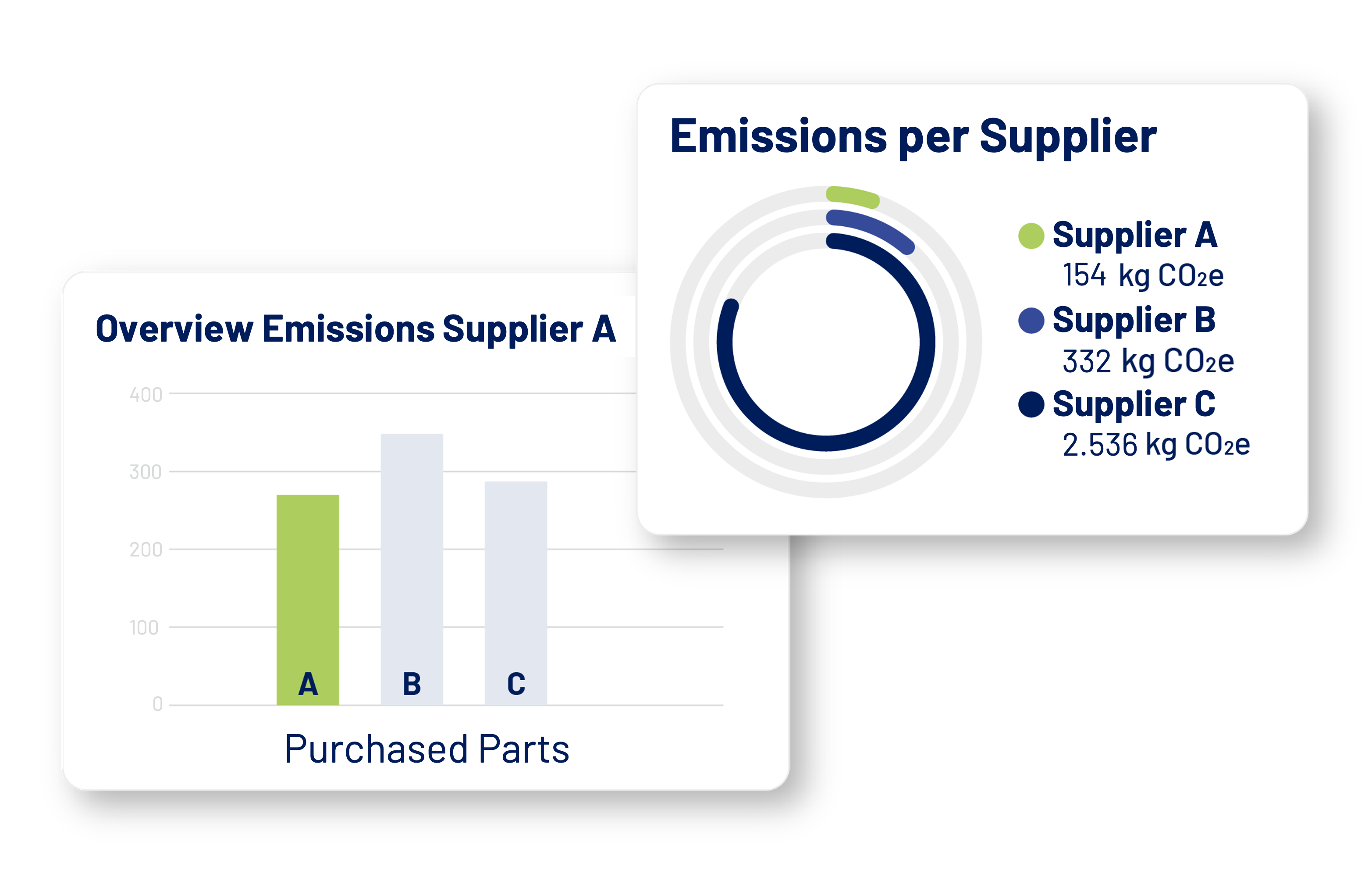Krones
Transparency of the emissions of the upstream supply chain (Scope 3.1)


„When we wanted to calculate the emissions in the upstream supply chain internally, we realized that the amount and diversity of information stored in our systems made a digital approach indispensable. With TELUSIO as an experienced partner in the field of data management, we can now tackle this in a targeted manner.“
Martina Birk, Head of SustainabilityStarting Position
The Krones Group, headquartered in Neutraubling, Germany, plans, develops and manufactures machines and complete lines for the areas of process technology, filling and packaging. The company has 7,058 registered patents and utility models.
Krones is aiming for climate neutrality along the entire value chain by 2040. According to the Science Based Targets Initiative (SBTi), this means reducing emissions by at least 90% and neutralizing the remaining 10%.
As around 80% of emissions are generated in the supply chain (Scope 3), particularly in the production of purchased raw materials and goods (Scope 3.1), this area offers the greatest potential for reduction.
Due to the high purchasing volume, manual data collection proved to be very resource-intensive. In addition, suppliers provided hardly any usable primary data. Existing data also had to be checked for plausibility.
Krones used a spend-based approach for Scope 3.1 emissions in order to calculate reliable emission values.

„The precise calculation of emissions in the upstream supply chain is extremely relevant for us to meet our ambitious reduction targets. TELUSIO offers us a data-driven, transparent and dynamic approach that we can scale up as required.“
David Meier, Senior Risk- and Sustainability Manager Corporate ProcurementChallenges
Krones is aiming for climate neutrality along the entire value chain by 2040. According to the Science Based Targets Initiative (SBTi), this means reducing emissions by at least 90% and neutralizing the remaining 10%.
As around 80% of emissions are generated in the supply chain (Scope 3), particularly in the production of purchased raw materials and goods (Scope 3.1), this area offers the greatest potential for reduction.
In future, the calculation of emissions should be activity-based in order to provide reliable values regardless of price changes, precisely identify emission hotspots and enable agile decisions in the event of regulatory changes.
Krones faced challenges when introducing the activity-based method: The underlying materials had to be recognized and assigned to current, scientifically based emission factors. Due to the large amount of data, manual processing was impractical.
Krones therefore needed a dynamic, automated and transparent solution to effectively support the ambitious reduction targets.
Current, spend-based calculation of supply chain emissions is too inaccurate
Hardly any (reliable) primary data from suppliers
High purchasing volume makes manual or Excel-based approach impossible
Resource-intensive data management required
Solution



Krones is aiming for climate neutrality along the entire value chain by 2040. According to the Science Based Targets Initiative (SBTi), this means reducing emissions by at least 90% and neutralizing the remaining 10%.
As around 80% of emissions are generated in the supply chain (Scope 3), particularly in the production of purchased raw materials and goods (Scope 3.1), this area offers the greatest potential for reduction.
In future, the calculation of emissions should be activity-based in order to provide independent, reliable values, precisely identify emission hotspots and enable quick decisions to be made in the event of regulatory changes.
To overcome the challenges of the activity-based method, Krones relied on the AI-based TELUSIO Intelligence. This software efficiently processes large amounts of data, automatically assigns it to the relevant activities and enables the dynamic updating of primary data.
This gives Krones full transparency on Scope 3.1 emissions, identifies specific emission hotspots, facilitates reduction measures and improves the plausibility check of supplier data.
What characterizes the collaboration?

Thanks to TELUSIO’s data-driven approach, emissions in purchasing can be updated annually with a single click. This provides Krones with up-to-date and ISO-compliant data as a basis for strategic decisions and product-related emissions calculations.
Krones had been looking for an alternative to the previous spend-based method for some time and is now using TELUSIO’s dynamic solution to systematically carry out the activity-based calculation of emissions in the upstream supply chain. Thanks to the AI-based data processing, Krones has access to all relevant emission values of the purchased goods and can implement targeted reduction measures.

„The AI-based filling of data gaps and the dynamic calculation of emission values for over 100,000 purchased goods make it possible to calculate supply chain emissions.“
David Meier, Senior Risk- and Sustainability Manager Corporate ProcurementWhat are the next steps in the collaboration?


AI-supported completion of master data
Detailed overview of the CO2e of purchased goods emissions
Establishing an accurate data-based foundation to make informed decisions on emissions reduction (SBTi)
Direct comparison of a supplier’s primary values with scientifically based literature benchmark values
Ideal preparation for calculating the activity-based Product Carbon Footprints (PCF) of the products manufactured and sold by Krones
„The joint and successive coverage of the entire purchasing portfolio enables us to put together internal work packages according to priority and to adapt the project speed to internal resources.“
Linda Zimmerer, Manager Procurement Business Development
×
We look forward to talking to you!
Please leave us a short message here or send an e-mail directly to info@telusio.com.
We will get back to you shortly.
© 2025 TELUSIO GmbH







